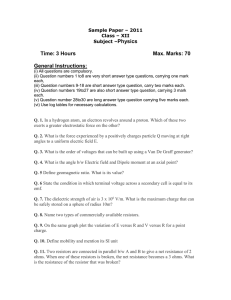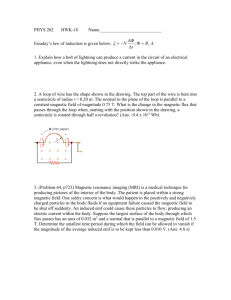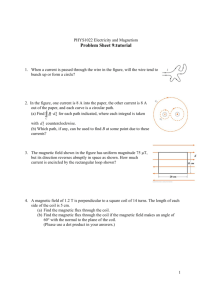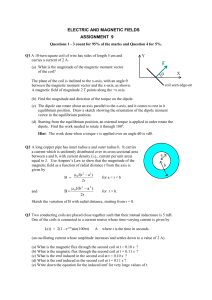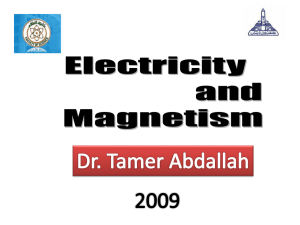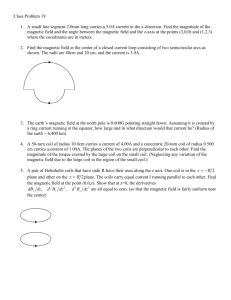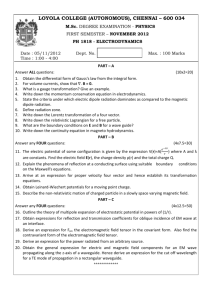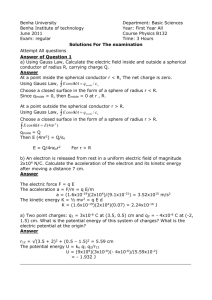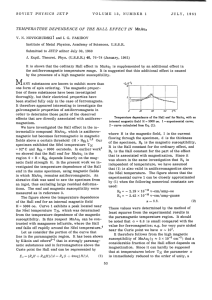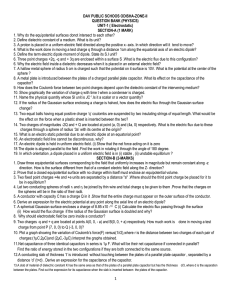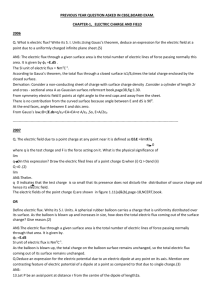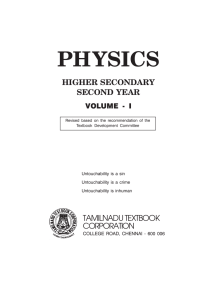ELECTRICITY AND MAGNETISM
advertisement
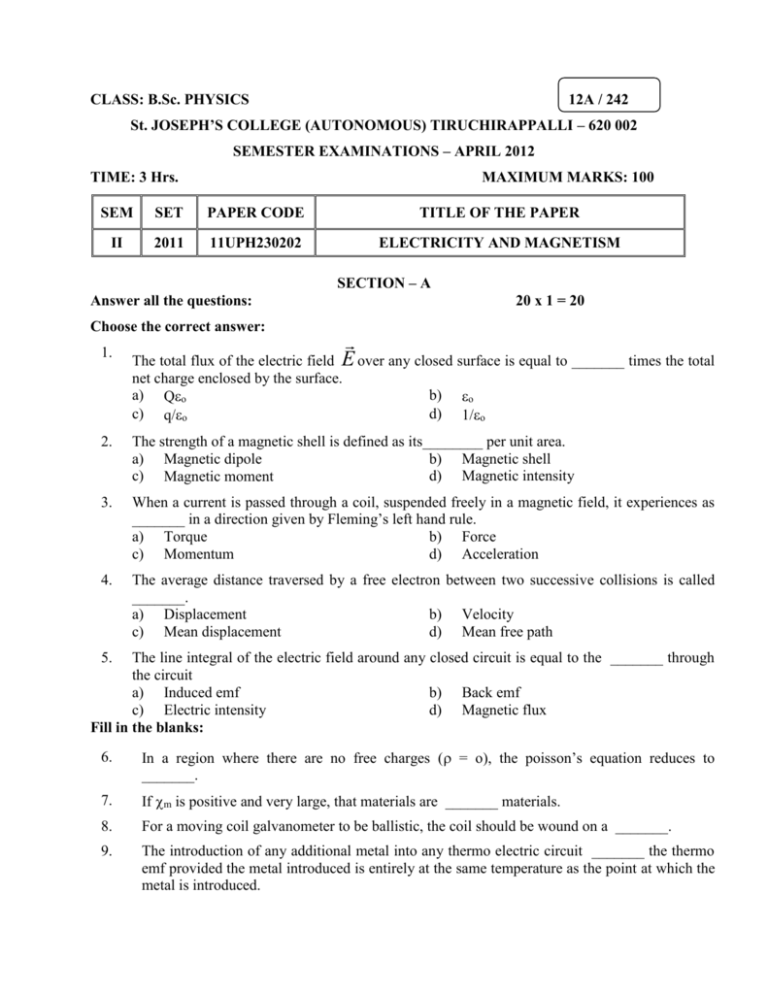
CLASS: B.Sc. PHYSICS 12A / 242 St. JOSEPH’S COLLEGE (AUTONOMOUS) TIRUCHIRAPPALLI – 620 002 SEMESTER EXAMINATIONS – APRIL 2012 TIME: 3 Hrs. MAXIMUM MARKS: 100 SEM SET PAPER CODE TITLE OF THE PAPER II 2011 11UPH230202 ELECTRICITY AND MAGNETISM SECTION – A Answer all the questions: Choose the correct answer: 20 x 1 = 20 1. The total flux of the electric field E over any closed surface is equal to _______ times the total net charge enclosed by the surface. a) Qo b) o c) q/o d) 1/o 2. The strength of a magnetic shell is defined as its________ per unit area. a) Magnetic dipole b) Magnetic shell c) Magnetic moment d) Magnetic intensity 3. When a current is passed through a coil, suspended freely in a magnetic field, it experiences as _______ in a direction given by Fleming’s left hand rule. a) Torque b) Force c) Momentum d) Acceleration 4. The average distance traversed by a free electron between two successive collisions is called _______. a) Displacement b) Velocity c) Mean displacement d) Mean free path 5. The line integral of the electric field around any closed circuit is equal to the _______ through the circuit a) Induced emf b) Back emf c) Electric intensity d) Magnetic flux Fill in the blanks: 6. In a region where there are no free charges ( = o), the poisson’s equation reduces to _______. 7. If m is positive and very large, that materials are _______ materials. 8. For a moving coil galvanometer to be ballistic, the coil should be wound on a _______. 9. The introduction of any additional metal into any thermo electric circuit _______ the thermo emf provided the metal introduced is entirely at the same temperature as the point at which the metal is introduced. 10. If the coefficient of coupling is zero, there is _______. State True or False: 11. In a parallel plate capacitor the electric field between the plates is uniform near the edges. 12. When a diamagnetic materials suspended freely they set themselves perpendicular to the field. 13. Ampere’s circuital law is 14. For a steady current passing through the potentiometer wire, the PD across any length is proportional to the length of the wire. 15. In case of DC motor for maximum output power, the back emf must be half of the applied voltage. B .dl o l . Answer in one or two sentences: 16. Write down the expression for the differential form of Gauss law. 17. Define magnetization of a material. 18. Mention any two conditions for a moving coil galvanometer to be dead beat. 19. State the law of Intermetallic temperature. 20. Mention the factors that decide the mutual inductance of the pair of coils. SECTION – B Answer all the questions: 21. a. 5 x 4= 20 State and prove Coulomb’s theorem. OR 22. b. Define electric potential energy. Obtain an expression for the same. a. Derive an expression for the magnetic scalar potential. OR 23. b. What is a magnetic shell? Obtain the expression for the potential at any point due to a magnetic shell. a. Derive an expression for the force between two parallel current carrying conductors. OR 24. b. Briefly explain the method to measure the charge sensitiveness of a ballistic Galvanometer. a. Derive an expression for the current density. OR 25. b. Explain the experimental method to determine the thermo emf using potentiometer. a. State and explain Faraday’s laws of electromagnetic Induction. OR b. What are the different types of self excited dynamos? Explain their characteristics and uses. SECTION – C Answer any FOUR questions: 26. 4 x 15 = 60 (i) Define capacitance of the capacitor (3) (ii) Derive an expression for the capacitance of a parallel plate capacitor. (6) (iii) What will be the capacitance if the space between the plates is partially filled with a slab of thickness d and relative permittivity r. (6) 27. What do you mean by magnetic vector potential? Derive an expression for the vector potential of a current loop. 28. Give the construction of a moving coil ballistic Galvanometer. Derive an expression between the quantity of charge flowing through it and the throw obtained. Show how to correct the observed throw for damping. 29. Derive an expression for the electrical conductivity of a metal based on Drude – Lorentz theory and obtain from it the Ohm’s law. How does conductivity vary with temperature according to the above theory? 30. Describe an earth inductor. Deduce an expression for the emf induced in it when rotated uniformly in a magnetic field. How will you determine BH and BV? **************
